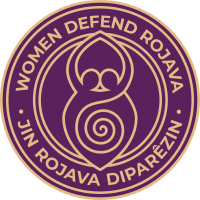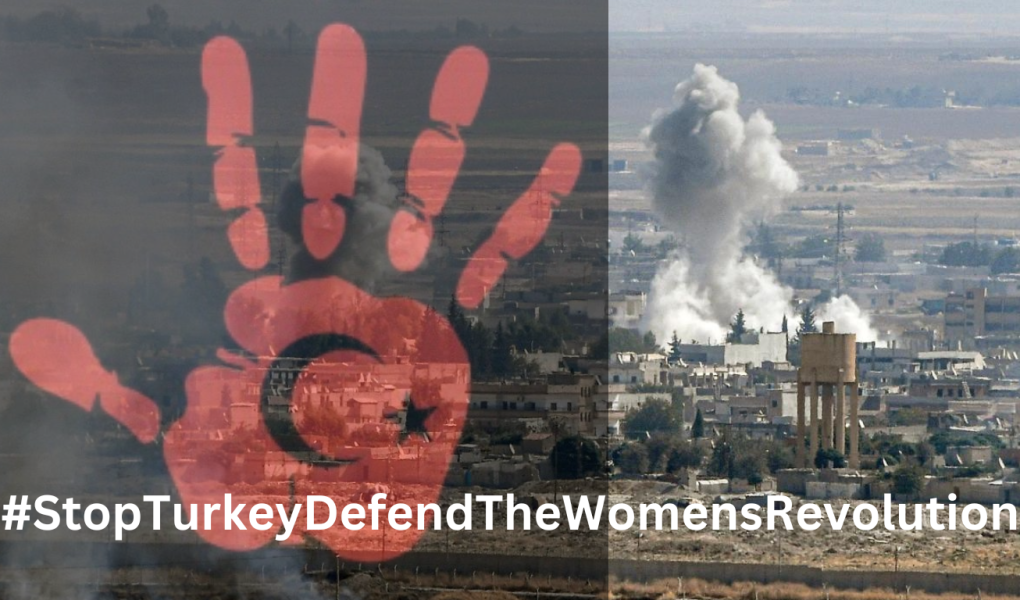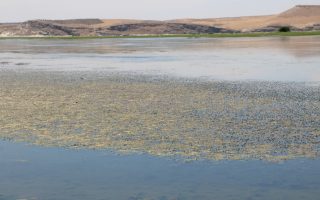This article is based on the contribution by Iida Käyhkö on the PRESS BRIEFING and Q&A Session with Newroz Ahmed (SDF) On Turkey’s attacks in NESyria.
In order to understand the silence of Western states in the face of the Turkish state’s latest attacks on Rojava, it is crucial to look at the geopolitical context and highlight the impact of the global acceptance of the security agenda of the Turkish state.
The position of the Turkish state has been strengthened by the geopolitical shifts following Russia’s invasion of Ukraine. NATO’s plans of expansion into Finland and Sweden, and the need to display a united front, have given Turkey the opportunity to force through its own agenda.
The Turkish state wants the world to agree with its propaganda — namely the propaganda that paints the Kurdish Freedom Movement as terrorists. Turkey is the second largest military power in NATO, yet it claims that the Autonomous Administration in Rojava poses an existential threat. No proof or precedent exists to support this narrative. In fact, the Turkish state has continuously allied itself with jihadist and fascist terrorist groups in its attempts to destabilise the region. It was the Turkish state that supported ISIS attacks on Rojava. It is the Turkish state that is currently attacking the defence units at Al-Hol camp to try and bring about an ISIS resurgence. Allowing the Turkish state to claim it is fighting terrorism is not only farcical, it is dangerous.
We have to be completely clear about this: it is the continued aggression and violence perpetrated by the Turkish state that causes insecurity and instability across the region. Turkey uses the War on Terror narrative to push the idea that security in the region can only be achieved through the total annihilation of Kurdish political movements.
Let’s also be clear: for many decades, Turkey has been supported by NATO, both militarily and politically, in its attacks on Kurdistan. The world has stood by as Turkey has massacred Kurds, imprisoned tens of thousands of people for minor acts of dissidence, and carried out illegal and bloody attacks across Kurdistan. NATO allies have kept selling Turkey weapons, and stated their agreement with Turkey’s so-called security concerns, all the while saying they stand for freedom and democracy.
As if this was not bad enough, Turkey’s NATO allies and other Western states attack Kurds and their allies outside of Kurdistan, on Turkey’s behalf. The Turkish state has consistently pushed Western states to criminalise the Kurdish Freedom Movement, and to use counter-terrorism legislation to target Kurdish organisations. The NATO states which continue to aid Turkey in its attacks on the Kurdish Freedom Movement also criminalise those within their own borders who try to influence or criticise this foreign policy. This political repression has a huge and damaging effect on solidarity organising and the creation of an effective popular front to resist genocide and war in Kurdistan.
Kurdish communities, as well as solidarity activists, face raids, arrests, imprisonment and deportation for their participation in political activity, community organising and diplomatic lobbying. All of this happens under counter-terrorism legislation, which gives states exceptionally broad and brutal powers. The Kurdish Freedom Movement calls these tactics ‘special warfare’ — because they are a crucial extension of the war in Kurdistan. Without this criminalisation, Western states would have to face much greater challenges to their complicity in the attacks of the Turkish state.
For the last decade, the Autonomous Administration in North and East Syria has offered the world a chance to see what grassroots democracy, based on women’s liberation, can look like. It has shown us the possibility of creating a radical alternative to the dominant system of inequality, conflict and patriarchy. For women everywhere, Rojava stands as an example of what organised anti patriarchal action can achieve — from creating spaces of freedom and collective organisation in communities, to defeating ISIS on the battlefields, to inspiring and supporting women across Kurdistan and the world to defend themselves against oppression. We can see this impact in the protests and uprisings that continue across Iran and Rojhelat following the death of Jina Mahsa Amini, where women have adopted the slogan Jin, jiyan, azadî, which has its roots in the Kurdish Freedom Movement.
It is necessary for Western states to reject Turkey’s security narratives, and to find political solutions that respect the democratic progress that has been made in Rojava. Those of us living in the West must resist criminalisation and join the call to defend Kurdistan. This is the only path to lasting peace.




